Has anyone seen Cole? A family's search for missing teenager
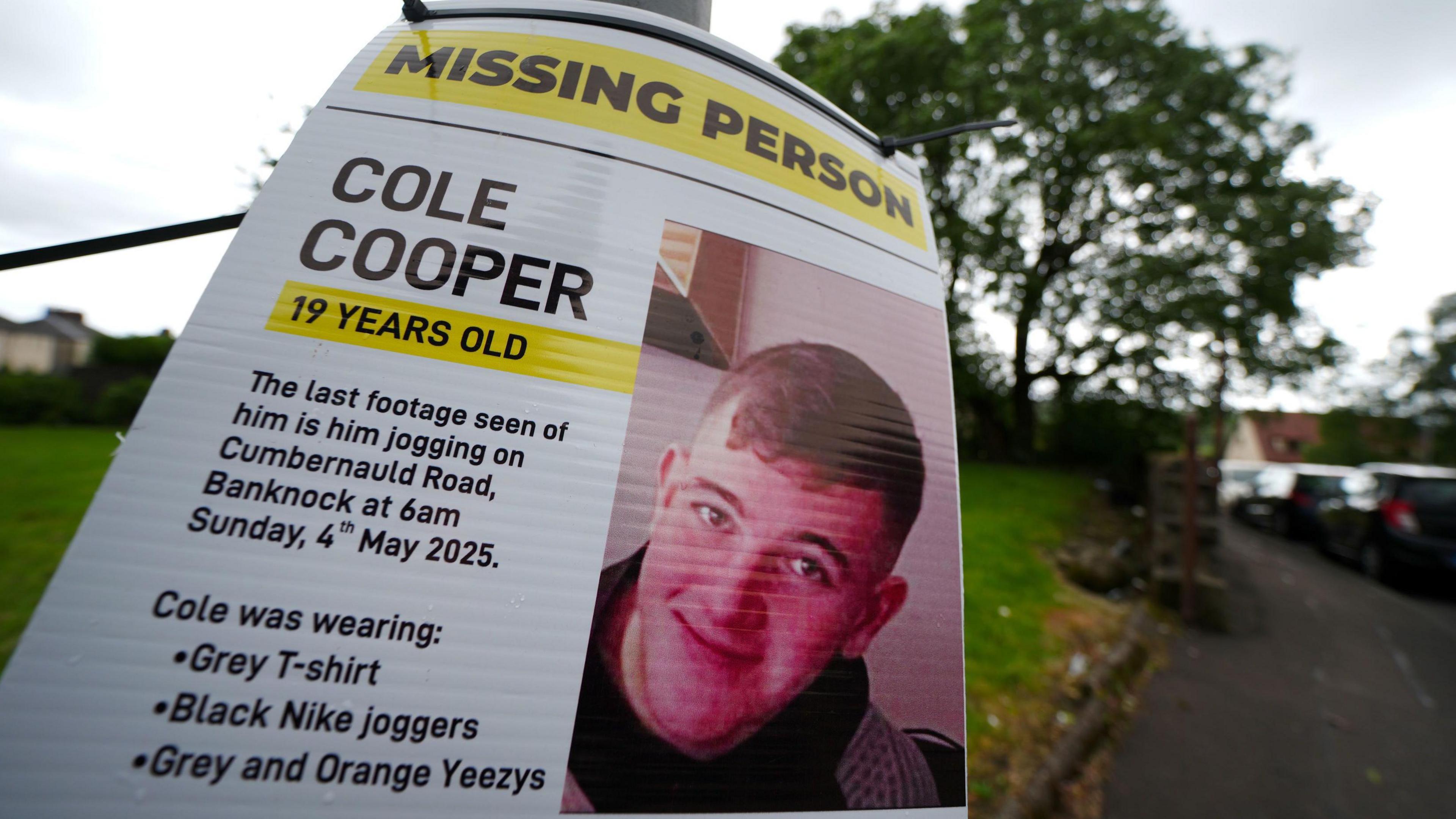
- Published
When 19-year-old Cole Cooper walked out into a cool May night earlier this year, no-one would have imagined he was in the final hours of his life.
He had been out with friends at a pub near his home in central Scotland.
But hours later his phone was off - no texts, no social media posts.
When there was still no trace of him five days later, his family called police.
"I was told that he's just a missing young boy, who's possibly out and drunk," said Cole's mum, Wendy Stewart.
She said she was told Cole was not high risk.
The police risk assessment is a critical part of a missing person inquiry. It's a set of questions establishing the likelihood someone may have come to harm.
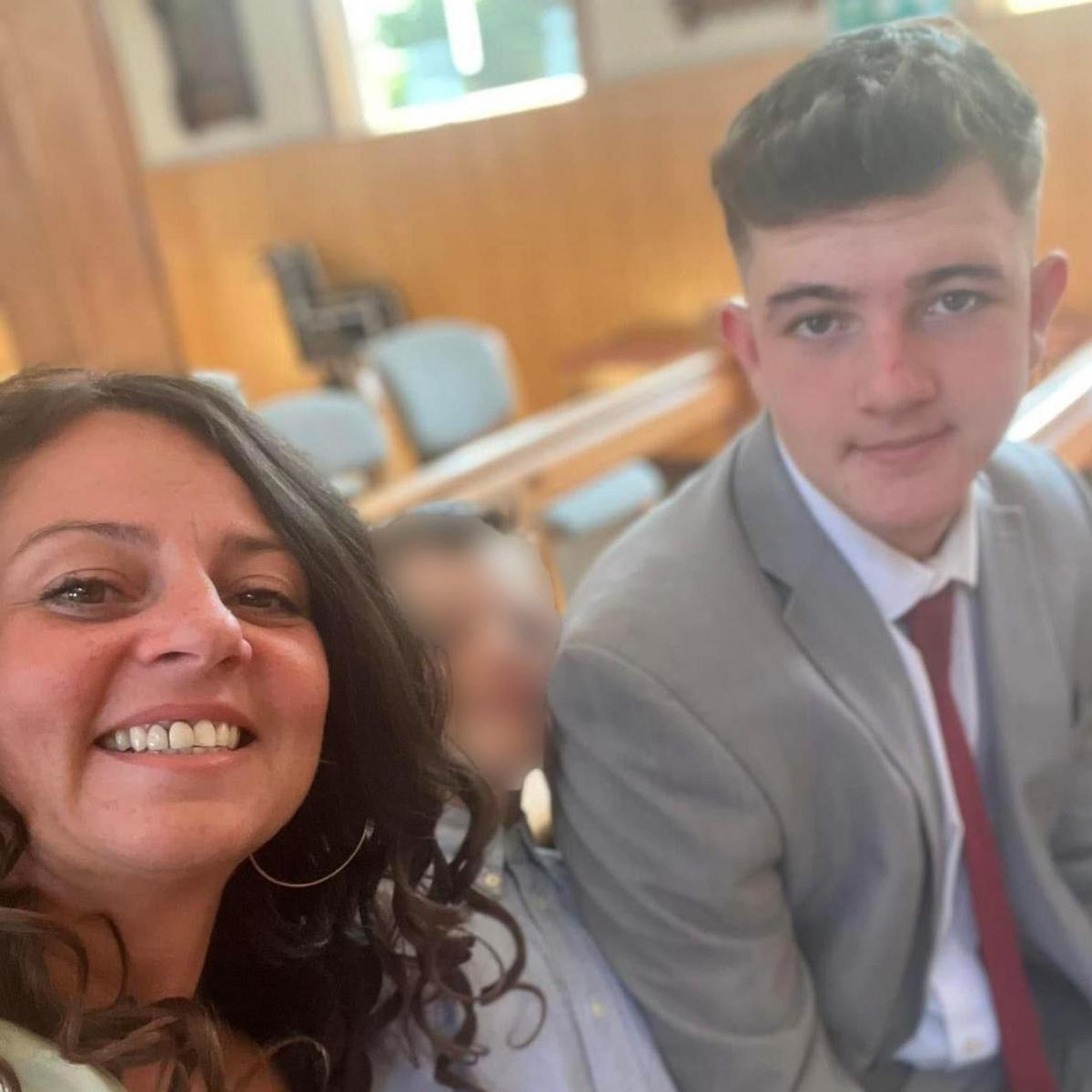
Wendy said Cole had struggled with his mental health
Questions include any known risk of suicide, and whether it's out of character for the person to have gone missing.
The risk rating given by police determines the level of resourcing for the case.
Police Scotland says the decision to issue a public appeal is based on the circumstances and that a person's age, sex or sobriety are not factors.
Warning: This article contains upsetting details and references to suicide
Cole's family told the BBC's Disclosure programme that they told police from the beginning Cole's disappearance wasn't typical behaviour - and that he had been struggling with his mental health.
"We explained to the police about Cole's mental health. Although Cole had not been diagnosed with depression or anything like that, he did struggle," said Wendy.
"And they still did not put Cole as a high risk.
"He's never run away... police have never been involved in my son's life until the time he disappeared."
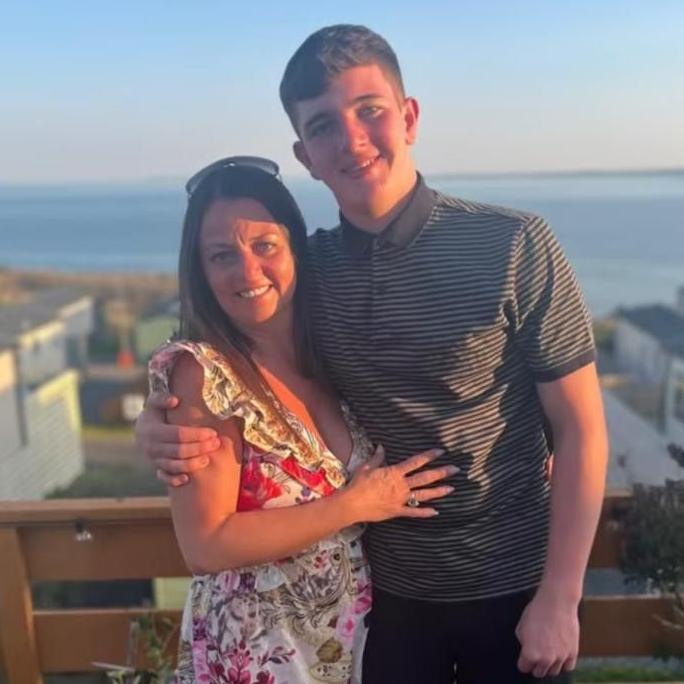
Wendy said the police had not been involved in Cole's life until he disappeared
The police initially deemed Cole to be medium risk after carrying out an assessment and speaking with family and friends.
They said Cole regularly moved between addresses and that it was not uncommon for him to be out of touch with his family for periods of time.
Cole's family felt like they had no choice but to become investigators and make their own appeal.
His aunt, Aimee Tennee, said: "We just decided we're going to do it ourselves when they're not listening to us."
They took to social media, writing one simple post: "Has anyone seen Cole?"
"The minute that it went on there, it started to kind of spiral," Aimee said.
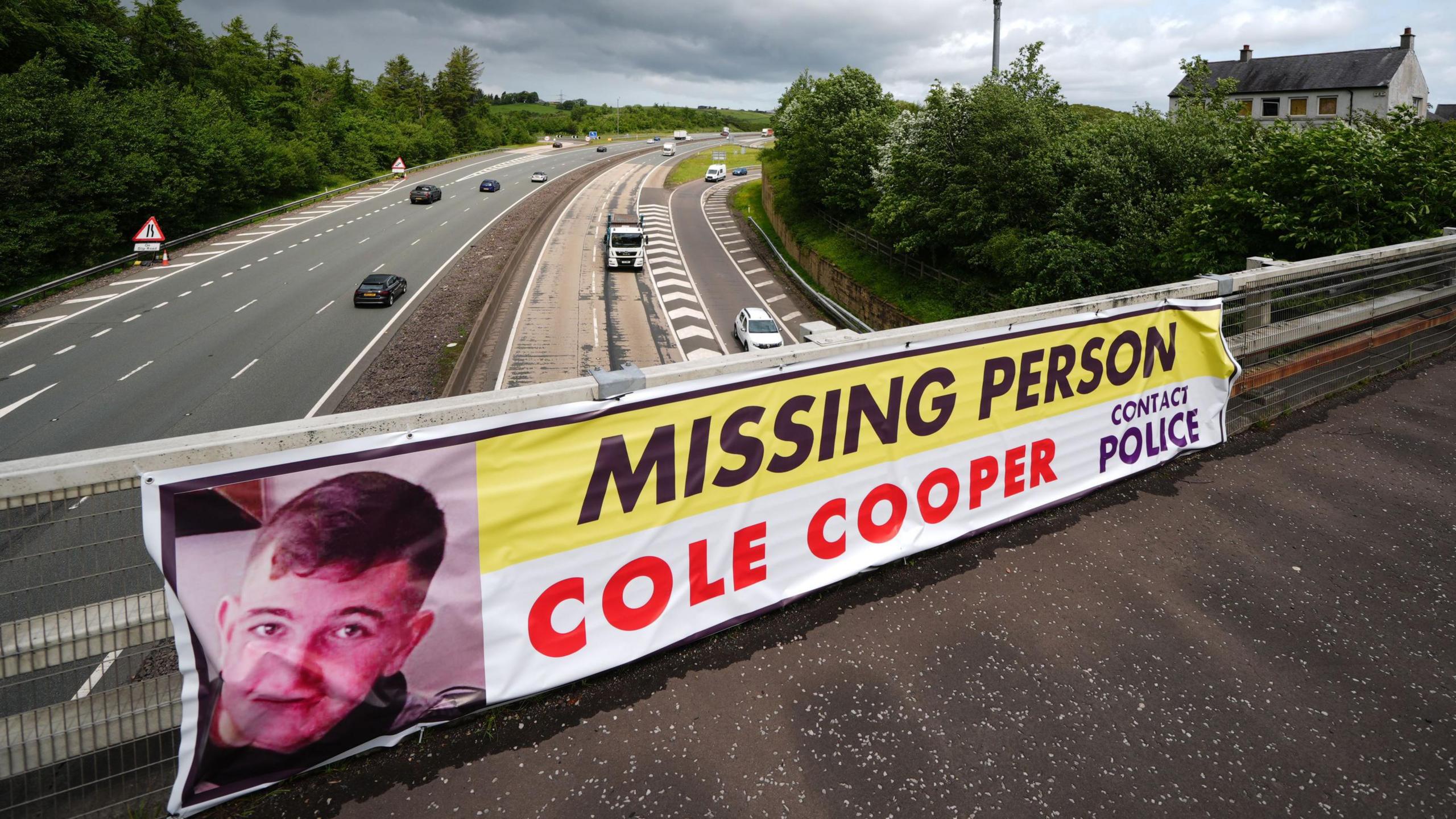
Cole's story began spreading across Scotland and beyond. His face was on multiple TikToks, Instagram stories and Facebook updates.
The family set up a specialist page, and sightings and information were shared online between thousands of people.
Aimee said they received hundreds of messages from people who thought they had seen Cole.
The family organised search parties, which involved up to 300 people at times in the later stages of their search.
The disappearance had shocked the tight-knit community in Banknock, the former mining village on the banks of the Forth-Clyde canal near to where Cole lived. Local residents scoured the area as they helped with the search.
The family also began to conduct their own door-to-door inquiries, asking people to check their security cameras.

Aimee Tennee says the family received hundreds of messages about Cole
"It's quite sad that it got to a point where we were having to do that," Aimee said.
"Instead of you concentrating on your grief and your despair and your desperation for that person, you're now in a different role."
Police Scotland says the family had expressed a wish to carry out their own searches and appeals, which they were entitled to do.
"We advised them on this. However, at no point did Police Scotland request or encourage the family to lead the investigation or provide updates," a spokesperson said.
The police had also been searching for Cole.
Five days after he was reported missing, they issued their first public appeal - then they raised his risk rating from medium to high.
Victim recovery dog teams and drones were brought in, as well as the police helicopter and divers.
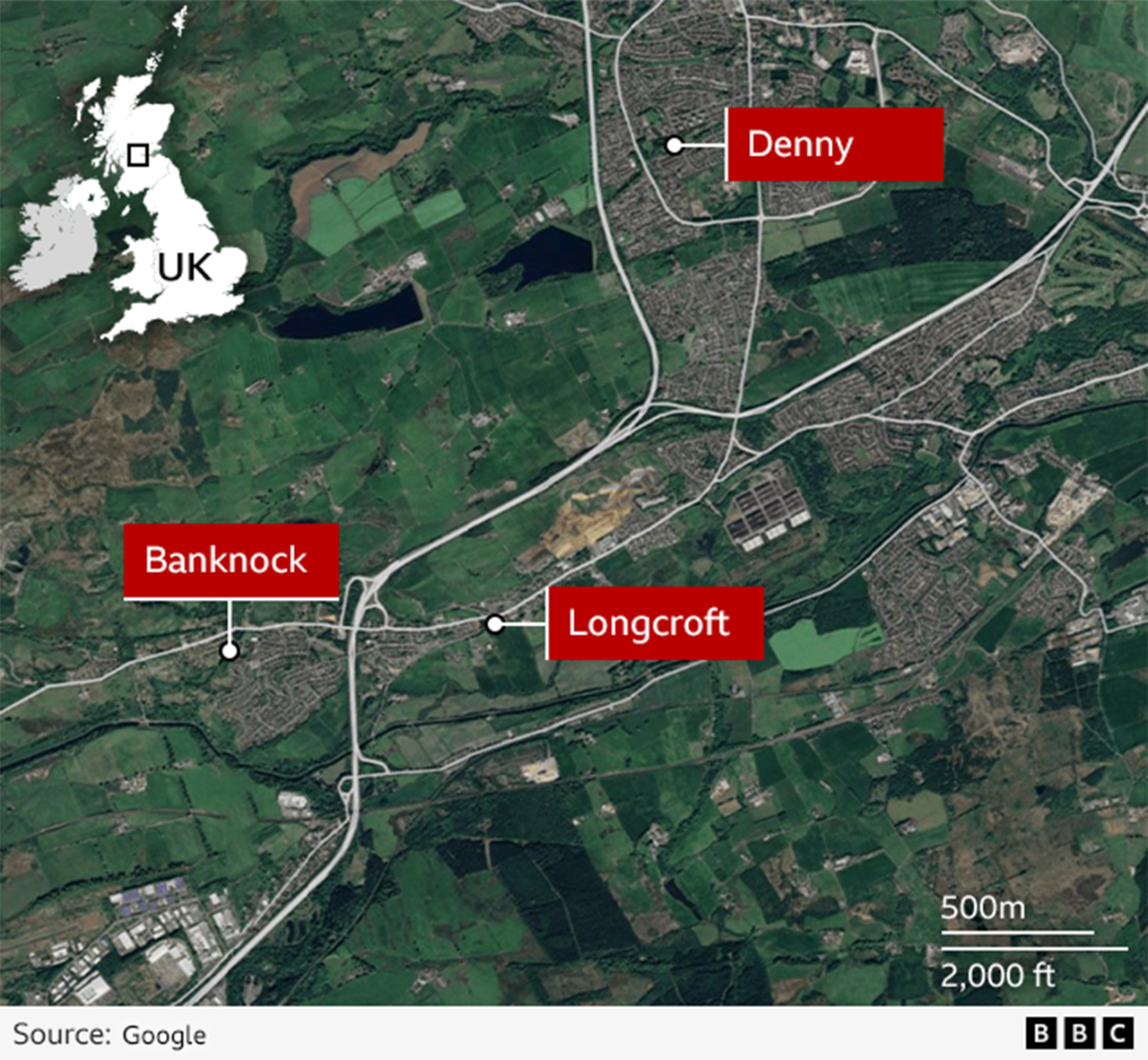
The family pieced together the last hours of Cole's life and built a timeline of where the teenager had gone, hoping for clues.
They found footage of him from just after he left the pub in Denny, in Stirlingshire, on the Saturday night.
He was captured on camera walking to a house party, then later a doorbell camera picked him up walking to and from his dad's house, although he wasn't in.
The family got CCTV footage from a mechanic's garage which picked Cole up as he headed down the main street at Longcroft, pausing near a bus stop.
At 06:00, he was then seen running past a row of houses near Banknock, then down Cumbernauld Road.
That was the last confirmed sighting of Cole.
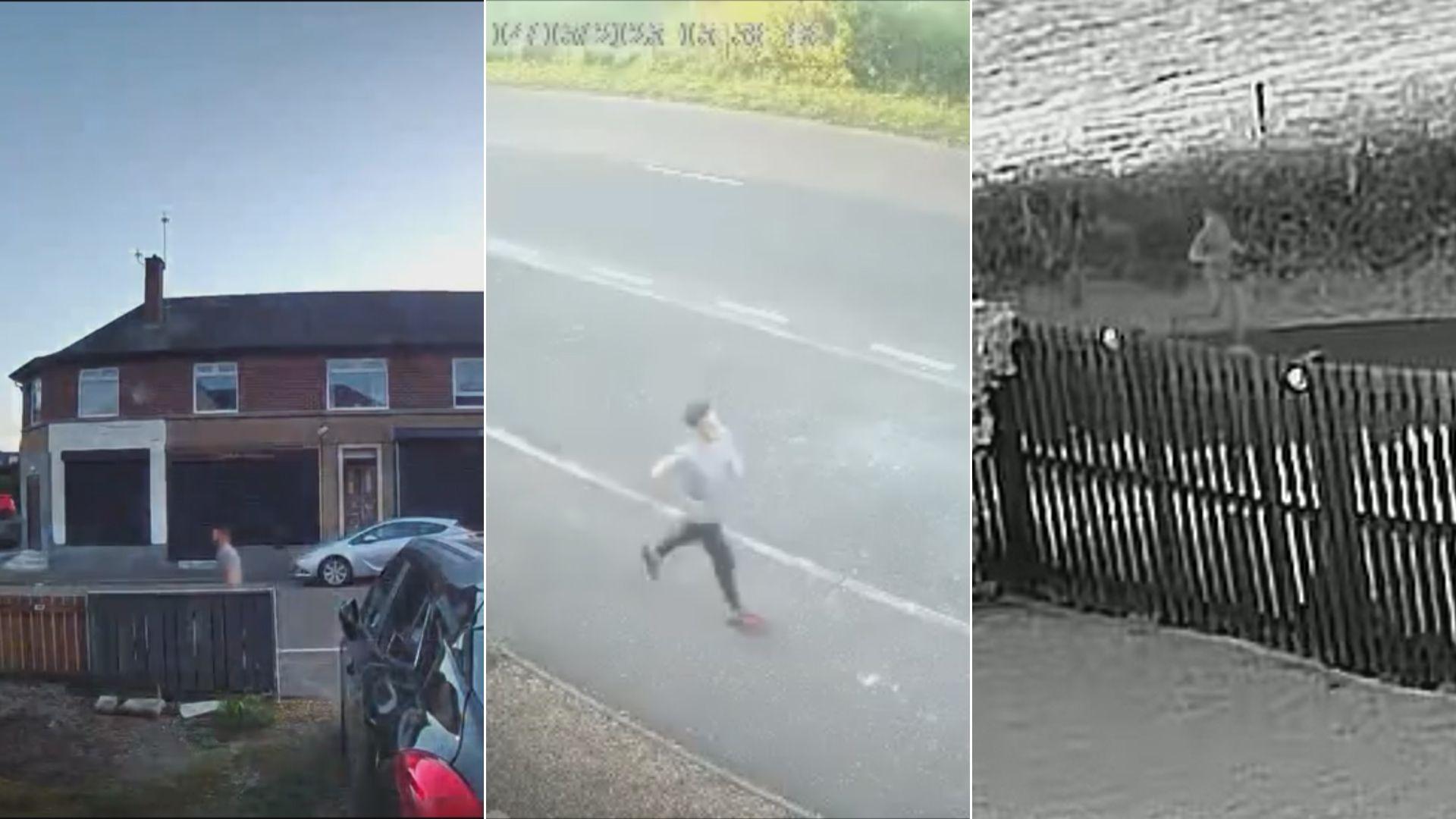
CCTV footage of Cole on the night he went missing was given to the family
There are about 15,000 missing person reports, external to Police Scotland every year - about 40 a day.
While the vast majority are found or return, up to 20 people each year are not located within 12 months.
It is estimated that 75% of adults come to harm while they are missing, and last year 97 people were found dead after being reported missing.
According to organisations who specialise in missing persons, men are at the highest risk of serious harm in the hours and days after they vanish.
Families regularly tell campaigners of a similar experience: that their sons are not seen as vulnerable.
They say age and sex act like a buffer that softens the urgency of their disappearance.
Campaigners say the assumption that young men are resilient, unpredictable and capable of disappearing - and therefore less vulnerable - can cost lives.
Disclosure: Has Anyone Seen Cole?
The agonising journey of Cole Cooper's family as they struggle to understand what happened to him.
Watch now on iPlayer or on BBC1 Scotland at 20:00 on Monday 24 November
Josie Allan is head of policy at Missing People, the UK's only charity dedicated to reconnecting missing people with their loved ones.
"We do hear from families that there's this assumption that because their missing person is a young man that they'll be fine, boys will be boys, they'll come back of their own accord.
"There's this lack of vulnerability perceived for boys and young men, when actually we would be really worried if that was a young woman that had gone away for multiple days.
"We're not necessarily then understanding the risks that they might be facing, and families feel like that can then inform the risk assessment, it can inform the amount of resources put into it, and ultimately can mean that they're not found safe."
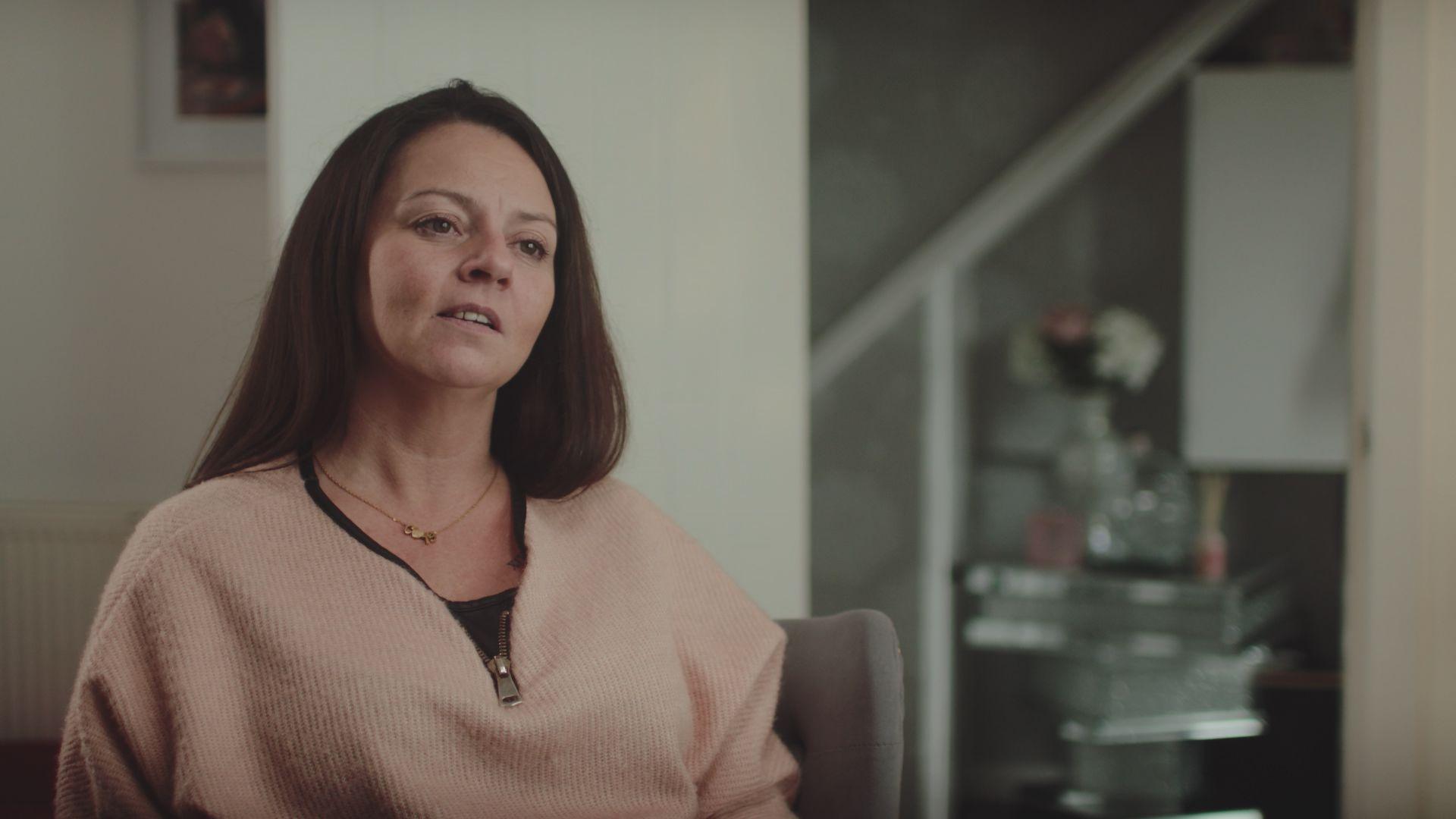
Wendy Stewart questioned why police said Cole's death was unexplained
Five weeks after he was last seen, Cole's body was found by a member of the public in a small, wooded area next to a children's playpark less than a mile from his mum's house. He was slumped against a tree with a ligature around his neck.
The exact cause of death could not be found during a post-mortem examination.
The police told the family there was no evidence of anyone else being involved in Cole's death and said it was unexplained.
"What is unexplained?" asks Wendy. "If you are saying you think my son has taken his own life, then why have you still got that as unexplained?"
Josie Allan says this often happens if police resources aren't put into a thorough investigation.
"That can absolutely contribute to an unexplained outcome because unfortunately some evidence is lost," she says.
"There is a risk that if young men are less likely to get that kind of sense of urgency, and therefore less likely to be found quickly when something bad has happened, then that could mean that there's less likely to be answers about what happened to them."
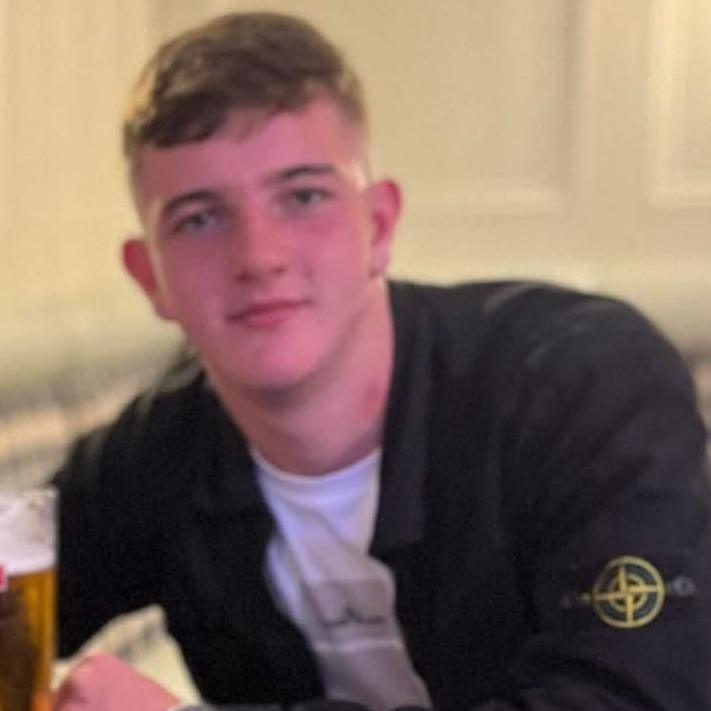
A post-mortem examination did not establish the exact cause of Cole's death
Police Scotland told the BBC that all deaths where the circumstances or cause are unknown are treated with caution.
"The initial protocols, similar to suspicious deaths, are implemented until more information is available."
The Scottish government recently updated its National Missing Persons Framework, strengthening risk assessment and promising better engagement with families.
But campaigners argue that unless the deeper cultural assumptions around young men are addressed, the gaps will remain.
If you have been affected by any issues in this story you can contact the BBC Action Line for help and advice.
Related topics
- Published13 June

- Published9 June
